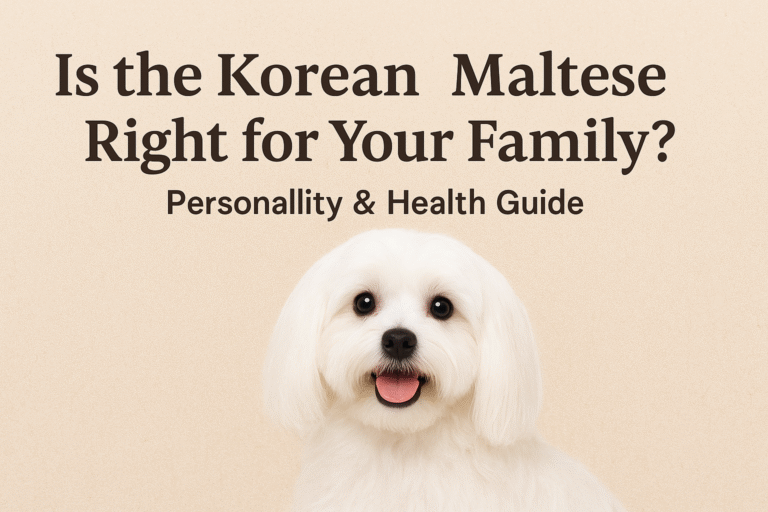Havamalt Puppies Complete Guide: Temperament, Traits, and Care
Sweetly bred between lovely Havanese and lovely Maltese, the Havamalt is sweet, lovely, and precious, with a gentle temperament. Havamalts are winning hearts from dog owners worldwide. Apartment resident or mansion resident, these puppies love you.
This ultimate guide introduces to you everything that you may want to know about Havamalt puppies, such as personality types and temperament, grooming, training, and health requirements.
Havamalt Overview
| Trait | tDetails |
| Breed Type | Director (Havanese × Maltese) |
| Size | Small (7–13 pounds) |
| Height | 8–12 inches |
| Lifespan | 12–15 years |
| Coat Type | Long, silky, low-shedding |
| Temperament | Affectionate, friendly, adaptable |
| Best For | Families, seniors, apartment living |
Temperament and Personality
Havamalts blend the Havanese’ playfulness and outgoing personality with the Maltese’ gentle disposition and loyalty. This is a great breed for
- Families with children – They are very affectionate and love to be invited to participate.
- First-time dog owners – Their friendly nature and medium level of training needed make them an ideal companion.
- Companionship – Havamalts love your companionship, whether it is just hanging around the house or taking walks.
They are vigilant but not chatty, good watchdogs but not constant barkers.
Physical Characteristics
Havamalts are solid yet compact. Some characteristics are:
- Face: Sweet, expressive rounded eyes.
- Ears: floppy ears with long, silky coat.
- Coat: Straight or slightly wavy; low shed but high maintenance in terms of grooming.
- Colors: White, cream, champagne, silver, and light tan are common.
Grooming Needs
Low-shedding as they are, their long, smooth coat will need to be groomed often:
- Brushing: Daily, at least 3–4 times a week, to avoid tangling and matting.
- Teeth: Brushed every 2–3 weeks to discourage dental issues.
Tip: Others have the “puppy cut” done to save grooming time without losing the cuteness of the dog.
Tips for Training
- Train early: Obedience and socialization need to begin at puppyhood.
- Reward them: Playtime, treats, and praise.
- Socialize them: Socialize them thoroughly with lots of people, sounds, and places to avoid shyness.
Exercise Needs
Although they require little exercise, Havamalts enjoy exercising daily:
- Walks: 20–30 minutes daily.
- Play: Indoor playtime, fetch, and indoor tug-of-war.
- Brain games: Puzzle toys and training games to keep them cognitively sharp.
Food and Nutrition
The Havamalt’s diet is the secret to having them look so great:
- Food: Top-shelf small-dog dry kibble or fresh vet-inspected cuisine.
Tip: Watch their weight VERY carefully, as little breeds will gain it on so quickly.
Health and Lifespan
Havamalts are mostly a healthy cross, but they will carry on problems from the parent breeds:
- Dental issues (their small breed parents might be susceptible to)
- Patellar luxation (kneecap issues)
- Allergies to food or skin
- Heart disease (rare but can occur)
Average life span: 12–15 years healthy.
Preventative Care:
- Annual visit to a vet
- Battles with parasites and vaccinations
- Regular dental checkup
Havamalt that is your friend
The Havamalt will fit into the lifestyle of most, i.e., apartment, suburban residence, and country home. They are not isolator-type dogs that enjoy hours inside by themselves, though. They chew and bark when they do, a function of separation anxiety.
If you have to be away from home a great deal, dog sitting or day care is an option that will suffice and exercise them.
Pros and Cons of Havamalt Ownership
| Pros | Traditional Cons |
|---|---|
| Loyal and affectionate | Requires more grooming |
| Will accept other children and animals | Separated from family, has separation anxiety |
| Can be placed in live in most dwellings | Requires socializing and persistent training |
| Low shedder | Can be susceptible to dental problems |
Is a Havamalt in Your Future?
Opt for a Havamalt if you want a social, people-oriented pet that will suit most lifestyles well. But you must accept the grooming task and lifelong friend commitment.
Havamalts FAQs
- Are Havamalt hypoallergenic?
They are a low allergen dogs althoughts no breeds is 100% hypoallergenic. - How much exercise Havamalt need?
Around 30 minutes per days in the form of play and walkings. - Are Havamalts good pets when left alone?
They like to have someone with them and will become anxious if left alone briefly. - Do Havamalts bark a lot?
Not really, but they will let you know when someone shady is coming down the path or something strange is on the doorstep. - How big are Havamalts?
They are generally 7–13 pounds and 8–12 inches tall.







